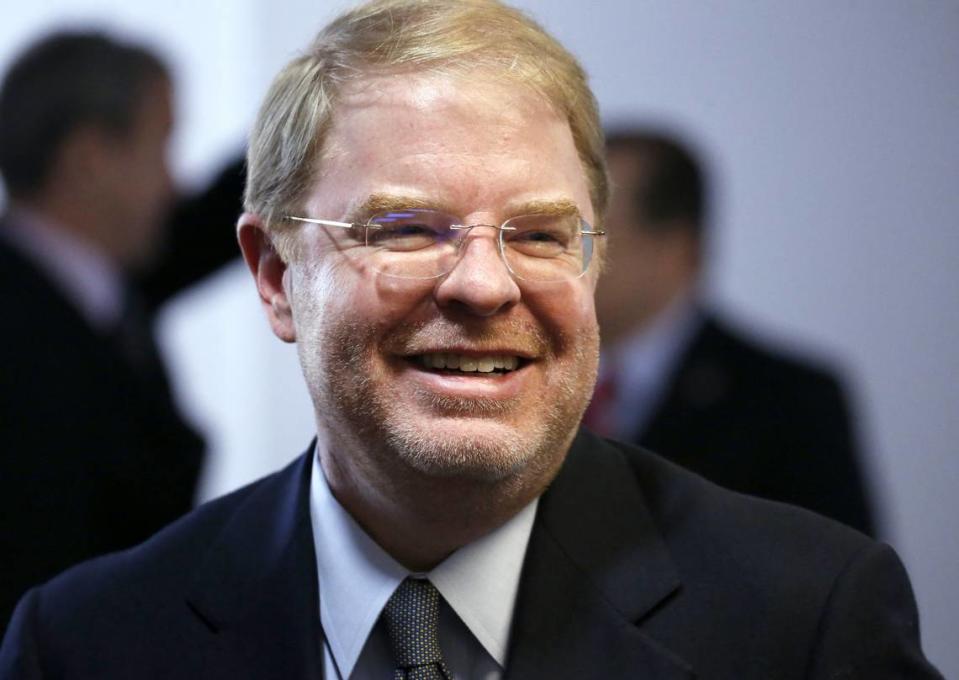North Carolina’s selection process for chancellors has a rocky statewide record | Opinion
The search for a permanent chancellor at UNC-Chapel Hill will be scrutinized for its political overtones as Republican lawmakers and their appointees seek to steer the university onto a more conservative course.
But the political influence in selecting university leaders is not confined to Chapel Hill. The UNC System’s other 16 campuses in are also being stymied by a top-down selection process dominated by UNC System President Peter Hans.
Giving Hans a strong hand in the confidential process – he appoints the interim chancellor, selects the search committee, reviews and can reject the finalists and presents the top candidate to the UNC Board of Governors for approval – is justified because chancellors report to him. But Hans is himself closely responsive to the will of Republican legislative leaders and their appointees on the Board of Governors and campus boards of trustees.
The selection process has a rocky record. At Fayetteville State, a former member of the Board of Governors was named chancellor despite not being among the search committee’s finalists. At UNC-Wilmington, there was reportedly an unsuccessful attempt by House Speaker Tim Moore to insert his favored candidate as chancellor. At UNC-Asheville, Hans appointed a former UNC System employee as the interim chancellor and she was chosen for the job permanently over more than 130 candidates from around the nation.

James Moeser, who served as UNC-CH chancellor from 2000 to 2008, said politics has increasingly influenced who leads UNC campuses since Republicans won control of the General Assembly in 2010.
“The Board of Governors and board of trustees seem to be peopled by political figures who are intent on following the party line,” he said. “In my day, I didn’t know the politics of the board of trustees, nor did I care. It was just irrelevant.”
Moeser said Hans will try to serve Chapel Hill’s best interest, but he’ll first carry out what the Republican-dominated Board of Governors wants. “I have some hope for Peter Hans,” Moeser said. “I know he cares about this university. He’s a graduate of it and he knows its quality. On the other hand, I think he’s an accommodator.”
UNC’s chancellor selection process magnifies candidates’ political qualifications while reducing faculty members’ engagement in choosing who will set the priorities and shape the culture of campuses. It gives Republican leaders tighter control over the system, but it also screens out free-thinking candidates with bold visions and leads to chancellors who are more imposed on a campus community than selected by it.
“Clearly the concentration of power in the president’s hands is not a good thing. He doesn’t have to listen to much input from the faculty,” said David Ambaras, an N.C. State history professor who heads his campus’ chapter of the American Association of University Professors. “It’s a real problem for us and it doesn’t necessarily make for the best decisions.”
It’s naive to think in the increasingly politicalized realm of public higher education that UNC campuses could freely choose their leadership as if they were academic city-states. But if that were the case, the system would see more innovation and inspiration on its campuses.
Cecil Staton, who had a stormy, three-year tenure as chancellor of East Carolina University before being forced out in 2019, tried to lead with independence and vision. He wanted to make ECU a national model for how a university can transform its region. But when he publicly called for ECU to be funded closer to the levels at UNC-CH and N.C. State, he angered legislative leaders. That and other issues led to his departure.
“The role of chancellor at North Carolina is very different than it was 20 years ago. The political environment is just so different,” said Staton, who now lives in Georgia. “Everything is under a microscope and there are divergences of what a university means.”
Staton added, “To make all that work requires the wisdom of Solomon. I’m not sure many people can do that and do it well without, frankly, going crazy.”
UNC-CH will stage an elaborate search for a successor to departing chancellor Kevin Guskiewicz. But the process in Chapel Hill and across the system is one that looks for leaders who will follow direction rather than those who will set a new and more ambitious course.
Associate opinion editor Ned Barnett can be reached at 919-404-7583, or nbarnett@ newsobserver.com

